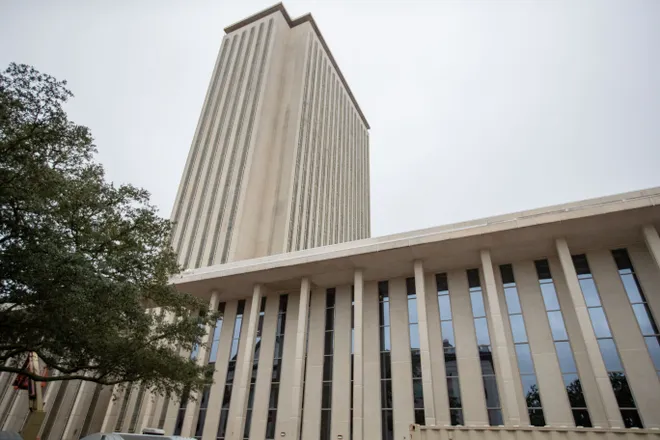
A Florida house bill that redefines terms related to a person’s biological sex is facing backlash from activists.
If HB 1233, proposed by Representative Dean Black (R), passes, the biological sex on birth certificates would determine whether they are considered male or female, regardless of if a citizen identifies otherwise.
It also changes language on disability identification cards, driver’s licenses and other ID cards from “gender” to “sex.” It stipulates that if health insurance covers “sex reassignment surgery,” it must also cover treatments for de-transitioning.
The bill had its first reading in the House on Jan. 9 after being filed on Jan. 4. If passed, it is set to go into effect this July.
“It will come as a surprise to absolutely no one that the State of Florida believes in truth and science,” Black said in a news release. “Since time immemorial, and for all time yet to come, there are two sexes: male and female. These are immutable, unchanging characteristics in the eyes of the law.”
Delilah Pierre, president of the Tallahassee Community Action Committee (TCAC), is speaking out against the bill.
“HB 1233 is an awful bill that targets and criminalizes the trans community in Florida,” said Pierre. “It’s an attack on the queer community and all working-class people in Florida, since it would raise everyone’s insurance rates to cover de-transitioning. Florida will continue to attack and criminalize the trans community until we stand up and organize against it.”
Tavyan Dorsey, the vice president of Students for a Democratic Society (SDS) at FSU, echoes Pierre’s sentiments with a concern for insurance coverage.
“The outcome could go one of two ways,” Dorsey said. “Insurance companies might stop covering gender-affirming care altogether, forcing trans people to move to a safer state or stop receiving life-saving treatment. Alternatively, companies that continue to cover both gender-affirming care and de-transitioning may increase their rates, impacting the living costs of working-class Floridians and burdening employers who provide health insurance.”
Dorsey also highlighted the bill’s impact on identification documents.
“The state is forcing trans people into an impossible decision with the changes to driver’s licenses and state-issued IDs. The bill is, in essence, forcing trans people to misgender themselves on identification or risk completely losing their IDs.”
“This is a blatant attempt at trans disenfranchisement, limiting where people could go, negatively impacting their ability to keep a job, and making it harder for them to vote,” said Doresey
The bill’s potential consequences for university enrollment were also addressed. Dorsey suggested that FSU might lose trans students who feel unsupported and unsafe in an environment where anti-trans legislation is prevalent.
Activist Jon Harris Maurer of Equality Florida, an LGBTQ+ rights action organization, says the bill must be fought to support the well-being of the transgender community in Florida.
“This bill is rooted in a dangerous ideology that denies transgender people do or should exist,” said Maurer.
“It is part of a blatant attempt to oust transgender Floridians and their families from the state, making them political refugees. We’re ready to fight.”



